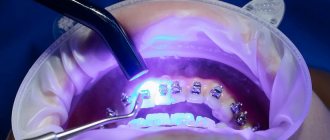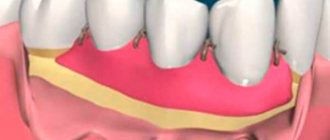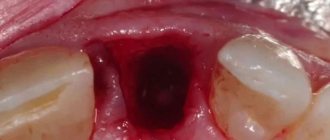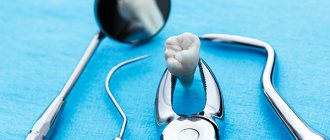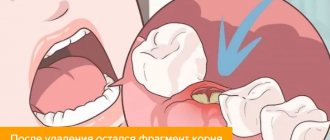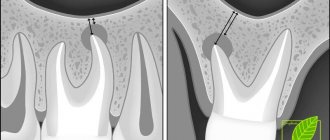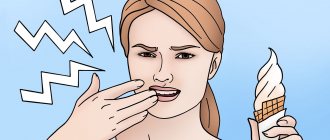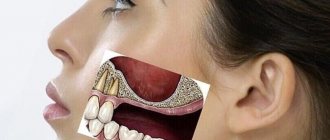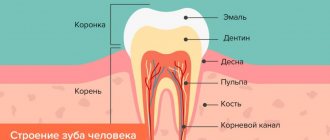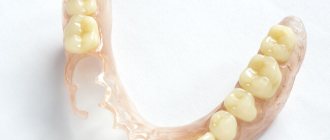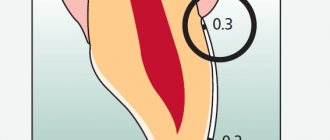Timely detection and treatment of dental diseases is considered a necessary and important condition for maintaining dental health. Even with careful daily oral hygiene, no one can be protected from the development of severe diseases of the teeth and gums, which a preventive examination at the dentist will help identify, because at the initial stage the disease can develop almost asymptomatically.
Experts strongly recommend undergoing a professional examination every six months, even without visible dental problems. Many people are interested in the question: Why exactly after six months? Based on numerous studies, scientists have concluded that this period is optimal for most oral diseases to begin their clinical manifestation. Therefore, they are easy to diagnose and treat because they are in the primary stage of development.
Of course, today the level of dental care is very high, which makes it possible to restore even severely damaged teeth and cope with any ailments of the oral cavity. However, it is better to prevent the disease than to treat it later in a long and tedious manner. Preventive dentistry is designed to recognize pathology in advance and eliminate it as soon as possible.
Mistake number 1.
The doctor was not prepared for the patient.
What should Svetlana Nikolaevna have done?
- Collect all the information from the administrator as much as possible. In most cases, patients already tell the administrator where they are hurting, this will give them the opportunity to calmly go through all the possible diagnosis options in their head.
- Calmly think through your actions, you can even write a cheat sheet:
- I enter a resourceful state of self-confidence;
- Getting acquainted;
- I question the patient carefully;
- I take a photo;
- I carefully examine the photograph;
- If necessary, I gather a consultation. It's better to look stupid in front of a colleague than to harm a patient.
- I discuss the diagnosis with the patient and sign all the documents.
Orthopedist, orthodontist, periodontist, dentist, paramedic, dentist... What do these definitions mean, what diseases are treated by doctors of these specializations, and which of them should you contact in a particular case?
Who is a dentist? To become a dentist, you must graduate from medical school or college. A specialist with secondary medical education is trained to perform relatively simple dental procedures. This does not mean that it is not able to cope with more complex cases, but its theoretical and practical basis is limited, and does not involve performing operations on teeth of the highest level of complexity.
Who is a dentist ? Dentist is a unifying definition applied to a dental specialist with higher education. (Stoma, stomatos means mouth in Greek, logos – teaching). To become a dentist, you need to graduate from a medical academy, institute or university. The duration of their studies is at least 5 years. Along with dental diseases, future dentists study many medical sciences - biochemistry, physiology, therapy, histology, etc. They are prepared not only theoretically, but also practically, having completed a one-year internship or a 2-year residency.
What is the difference between these concepts? The difference between a dentist and a dentist is the level of training and the type of treatment they can perform. The list of works provided for by the job description of a dentist includes: A dentist is a general specialist, diagnostics; treatment of relatively simple diseases of teeth and gums - gingivitis, stomatitis, caries and some others; removal of teeth not complicated by periodontitis; treatment of simple maxillofacial injuries. Carrying out physical procedures; consultation regarding the choice of oral hygiene products (OR); cleaning teeth from plaque and tartar, and some others. In case of more serious dental pathologies - malocclusion, pulpitis, periodontitis, periodontal disease, lesions that have caused tooth destruction by more than 50%, and in other cases requiring the participation of a more trained specialist, the dentist gives the patient a referral to a dentist of the appropriate specialization.
A dentist is a general specialist. He has theoretical knowledge and practical skills sufficient to perform therapeutic, orthodontic, orthopedic and surgical operations. Although, like a dentist, when faced with a particularly difficult case, he can refer the patient to a doctor of narrow specialization.
Narrower specializations: a large number and complexity of pathologies of the dentofacial apparatus, constant improvement of existing treatment technologies and the development of new ones require in-depth, specific knowledge and skills from dentists. This feature has found its implementation in the concept of narrow specialization of dentists. Depending on the type of work performed, the following specializations of dentists-therapists differ; orthodontist; surgeon; orthopedist; hygienist; pediatric dentist. Dentists often combine several specializations at once.
Dentist-surgeon. The prerogative of the profession of a dental surgeon is the following operations: Dental surgeons often treat diseases that are within the competence of dentists of other specialties; tooth extraction; treatment of tumors in the oral cavity; elimination of TMJ dysfunctions, diseases of the salivary glands and trigeminal nerve; primary treatment of wounds and injuries of the mouth, neck, face; plastic surgery and reconstruction of jaw bones; operations on periodontal tissues (gingivectomy, gum pocket removal, soft tissue transplantations, gingivoplasty, plastic surgery of the oral vestibule and frenulum); correction of dental anomalies, implantation. Dental surgeons often treat diseases that are within the competence of dentists of other specialties: phlegmon, periodontitis, sinusitis, periostitis, abscesses, osteomyelitis. They also diagnose specific diseases, the symptoms of which may appear in the PR - syphilis, tuberculosis, actinomycosis.
Dentist-therapist. Typically, patients seeking help from a dentist first see a therapist. A dental therapist is the broadest specialization in dentistry. Typically, patients seeking help from a dentist first see a therapist, who in most cases is able to cope with their problem alone. Job description The instructions of the dentist-therapist provide for the following work: examination of the oral cavity; diagnostics; treatment of teeth (caries, pulpitis, etc.) and periodontal disease (gingivitis, periodontitis, periodontal disease, periodontitis); preparation of PR for prosthetics, its sanitation; whitening and PG of teeth; preventive examination and advice on caring for RP.
Orthopedist.
An orthopedist specializes in restoring teeth using prosthetics. A doctor of this specialization is engaged in the restoration of dilapidated, missing or lost aesthetic teeth using prosthetics. Orthopedist: takes impressions of the teeth, from which the dental technician subsequently makes a prosthesis; tries on, adjusts and secures the prosthesis on the patient. Prosthetic structures are crowns, bridges, inlays , veneers, removable dentures.
An orthodontist adjusts the position of teeth using removable and non-removable orthodontic devices. Orthodontics is a subsection of dentistry dedicated to dental anomalies. The scope of activity of an orthodontist includes: prevention of deformations of individual teeth, dentition and jaws; normalization of occlusion; correction of jaw development; teeth alignment. Correction of the position of teeth is carried out using removable and non-removable orthodontic devices - mouthguards, braces, braces.
General dentist
The specialty “General Dentistry” was introduced by orders of the Ministry of Health No. 553 and 112. This specialty is of particular importance for rural areas, where it is desirable to have a specialist who can provide assistance in several clinical areas. However, until now, due to a number of organizational, educational and legal problems, general practice in dentistry has not received proper development.
Children's dentist. Children and adolescents under the age of 17 are patients of the pediatric dentist. A child's teeth have many differences from adult teeth. This includes the presence of baby teeth, the constant renewal and formation of the dentofacial apparatus, and the inability to use certain anesthetics for children. And the reaction of children to the dental chair creates increased problems. A dentist treating children must not only be able to distinguish pathology from the age norm, detect deviations in bite and tooth formation in time, but also be a bit of a psychologist.
Hygienist. The goal of a hygienist is to prevent dental diseases. Dental hygienist is a relatively new specialization in dentistry. Its goal is the prevention of dental diseases, its field of activity is dental hygiene, proper dental care. A dental hygienist performs the following work: diagnosing dental diseases; professional teeth cleaning; disease prevention; training in proper dental care skills; educational activities (inspections in kindergartens, schools, institutions, organizations, enterprises). © Source: https://dentoland.com/lechenie/chem-otlichaetsya-zubnoj-vrach-ot-stomatologa.html
Mistake number 2.
Panic turns off the brain.
Panic gripped the doctor from the very beginning. Each of us feels a rush of adrenaline in our blood. We doctors must be able to manage this. The easiest way is to switch your attention to your breathing for a few seconds and deliberately begin to breathe more slowly. Careful preparation, by the way, is also a great way to reduce stress. Switching to something familiar also works great: for example, you can and should fill out a patient’s dental chart. This will calm you down and prevent you from missing something important. Find your own way to calm your brain. You can read a lot of useful information about how the brain works in David Rock’s book “The Brain. Instructions for use"
Probing
To carry out probing and visual examination, the dentist uses an angled probe that has a notch at the end; it must be blunt.
To determine the degree of roughness, the doctor runs an instrument over the surface of the enamel:
A healthy tooth has a smooth surface, but if the tooth is affected by caries, the enamel surface will be rough. The doctor is obliged to check the condition of the periodontal pocket; to do this, he inserts a probe into the gingival groove on four sides of the tooth; if the probe sinks to a depth of 1 mm, then the pocket is healthy. If the immersion is much deeper, this may indicate that the periodontium is atrophied, and this may be caused by pathology.
Atrophied periodontium caused by root caries
Symptoms of the carious process are the following: the size of the gap between the tooth and the filling is increased, the dentitis under the chewing surface is too soft.
During an initial visual examination, it is very difficult to detect tartar deposits on the neck of the tooth, which is located in the periodontal pocket, but this can be detected through probing. The occurrence of periodontitis and gingivitis is provoked by subgingival calculus. The formation of superficial caries can only be recognized by visual inspection.
Mistake number 4
The doctor forgets to sign and discuss the informed consent form.
A young doctor usually believes that if he admits to the patient in advance that the treatment result may not be ideal, this will undermine the patient’s trust in the doctor. In fact, it's exactly the opposite. Anyone can have an instrument break in the canal, anesthesia can result in complications, and when removing upper teeth, a connection with the maxillary sinus can form, and even a piece of the root can fly into the sinus of the most experienced doctor. But! If the patient is warned about this, he will take it calmly. Both he and the doctor will have less stress, and the doctor's reputation will not suffer. And most importantly, the doctor will be able to calmly help the patient.
Toothache
Toothache
This is one of the most common reasons for visiting a dentist. Painful sensations in the teeth are the most unpleasant. There are several dental diseases that cause severe pain. To prevent problems from occurring, it is necessary to have your teeth checked and treated in a timely manner.
Causes of toothache
The most common causes of pain are:
- Deep caries is a deep cavity in the tooth, in which various kinds of irritants act on the nerve of the tooth;
- Acute pulpitis is the most common and painful cause in which inflammation of the nerve occurs and compression of the nerve endings by inflammatory exudate. Inflammation of the nerve has several forms and phases, first it is catarrhal, then purulent, and after a few days the nerve becomes necrotic;
- Acute or aggravated periodontitis is inflammation or suppuration of the tissues that surround the root of the tooth;
- Periostitis is an inflammation of the periosteum that occurs when infection spreads from the root of the tooth to the tissue surrounding the bone;
- Cyst suppuration is an exacerbation of the chronic inflammatory process around the cyst;
- Difficult eruption of the third molar is very often accompanied by damage and inflammation of the surrounding tissues.
Symptoms
The main symptoms of acute toothache are the occurrence of acute throbbing, shooting pains that last for a long period of time (more than 6 hours). The diseases will be accompanied by additional symptoms: inability to eat, swelling, facial asymmetry, increased body temperature, weakness.
What to do if you have a toothache?
When the first symptoms of the disease occur, it is recommended to consult a specialist for professional treatment. Only a doctor can completely eliminate the problem and prevent further complications. If treated incorrectly, an acute process can turn into a chronic one, which is less disturbing to a person, but can exist and remind itself for years. In this case, the infection spreads throughout the body.
If you are unable to urgently visit a doctor or the pain occurs at night, you need to take the right measures. Where to go if you have an acute toothache at night? At night, you can find out the reference number and address of a 24-hour dental clinic in your city. If there is no clinic, you can call a dentist you know or take a painkiller and visit the doctor in the morning.
Recommendations
A few recommendations on how and how to relieve acute toothache:
- carefully remove food debris from the interdental space;
- rinse the tooth with a solution of baking soda and salt;
- rinse your mouth with a decoction of chamomile or oak bark;
- do not chew food on the affected side;
- take painkillers (Ibuprofen, Nimesil, Ketanov, Nurofen);
- When reducing pain from the actions described above, you should not neglect visiting a professional.
Mistake number 5
The doctor does not tell the truth to the patient.
We interrupted the story with Svetlana Nikolaevna at the moment when she was thinking: should she tell the patient the truth? Definitely say! Feel free to look the patient in the eye and speak. Take textbooks; they always have many pages devoted to complications. This means they happen, and there is no escape from it. Anything is possible. It will be worse for your reputation if another dentist tells the truth to the patient. It will be worse for the patient if your silence and inaction worsens his health. And we all want our patients to be healthy.
Let's return to our young doctor. Svetlana Nikolaevna remembered about the breathing exercises, calmed her brain and decided to examine the hole again. This is not a connection with the sinus, it is a cyst cavity with a characteristic discharge. And here is a piece of the root. Oh! How wonderfully it all ended. Now the doctor is in a great mood. The brain has stopped panicking and can evaluate the situation critically. The doctor refers the patient to an otolaryngologist and says goodbye to him contentedly.
What hasn't the doctor done yet? One simple secret action
. It provides dense patient scheduling for both novice and experienced dentists. Write a comment of 4 words or more under the last post on our Instagram @doctorgutorova or @vakhrinairina, and we will send you the main secret of a dense recording.
Even more useful in our practical courses ⤵
What are the benefits of visiting the dentist regularly?
There are obvious benefits to patients from regularly visiting a qualified dentist:
- Gentle treatment. Pathologies that are diagnosed in the early stages are treated using minimally invasive techniques. The earlier the disease is detected, the less effort needs to be put into treating it.
- Save time. With constant visits to the dentist, the time of visits is reduced each time.
- Reduced costs. Treatment of pathologies in the early stages requires the use of fewer medications and consumables. In addition, timely therapy allows you to preserve the integrity of tooth tissues as much as possible and avoid their restoration.
Features of the profession
To have the prospect of career growth and opening your own dental clinic, you should go beyond a narrow specialty and become a general dentist. Such a specialist must have knowledge in the field of therapeutic, surgical and orthodontic dentistry, prosthetics, and aesthetic restoration of the dentition.
Generalist dentists, who, for example, are both therapists and prosthetists, are in demand in private clinics, where they pay good wages.
You can undergo professional retraining or advanced training courses at the Academy of Professional Standards. A convenient form of training is selected for a medical worker; there is the opportunity to study without interrupting work.
Learn to plan.
Surely you know that successful entrepreneurs plan almost every step they take. Planning is also important for dentists. This habit should be developed early in your career. Not only actions in work activities, but also personal life are subject to planning. This is done so that some goals and problems do not interfere with others. It is advisable to plan your week starting from Sunday. If you strictly follow your daily routine, then you will see how effectively you complete tasks, gaining valuable free time.
Where to study to become a dentist
A higher education as a dentist can be obtained at a university. Suitable educational institutions:
- Belgorod State National Research University;
- Kazan State Medical University of the Ministry of Health of the Russian Federation;
- St. Petersburg State University;
- Kuban State Medical University and others.
You can enter a university only after 11th grade. You need to take the Unified State Exam in the following subjects:
- Russian language;
- biology;
- chemistry.
These are specialized subjects for any doctor, not just a dentist.
Rest.
Constantly immersing yourself in work will not give effective results. Don't forget to rest when changing your occupation. Research has shown that the technique works great in any profession. Switch from mental stress to physical stress and vice versa. Many successful dentists combine their day job with regular exercise. During breaks, you can distract yourself by drawing, a short walk, or cooking. Rest allows you to clear your thoughts and increase productivity.
